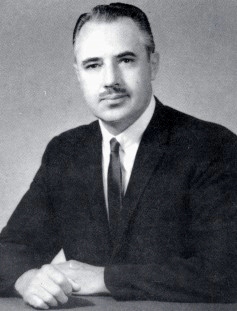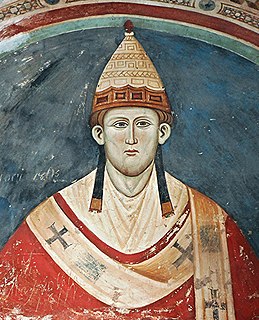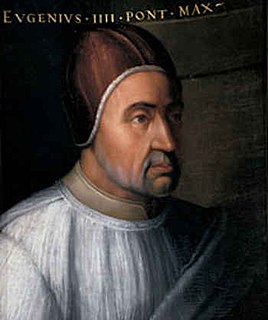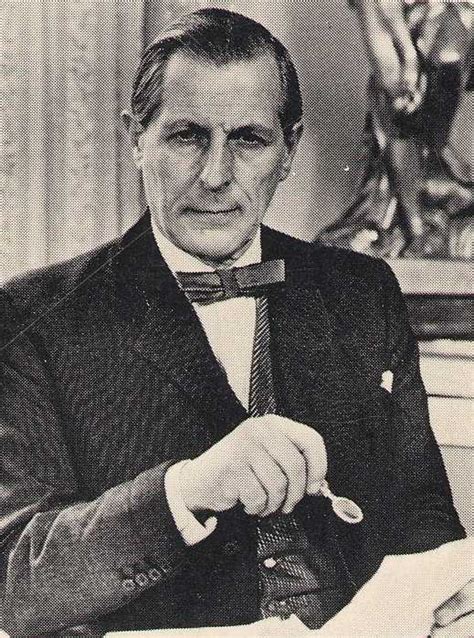Top 821 Roman Numerals Quotes & Sayings - Page 14
Explore popular Roman Numerals quotes.
Last updated on December 23, 2024.
Somebody somewhere on this planet, back about 600 B.C. found some pieces of R6, and I don't know how they found it, either by watching madman or something. But since that time they have used it and it became what is known as Christianity. The man on the cross. There was no Christ. But the man on the cross is shown as Everyman. So of course each person seeing a crucified man, has an immediate feeling of sympathy for this man. Therefore you get many PCs who says they are Christ. Now, there's two reasons for that, one is the Roman Empire was prone to crucify people, so a person can have been crucified, but in R6 he is shown as crucified.
When a Pueblo Indian does not feel in the right mood, he stays away from the men's council. When an ancient Roman stumbled on the threshold as he left the house, he gave up his plans for the day. This seems to us senseless, but under primitive conditions of life such an omen inclines one at least to be cautious. When I am not in full control of myself, my bodily movements may be under a certain constraint; my attention is easily distracted; I am somewhat absent-minded. As a result I knock against something, stumble, let something fall, or forget something.
It has been the White Race who has been the world builder, the maker of cities and commerce and continents. It is the White Man who is the sole builder of civilizations. It was he who build the Egyptian civilization, the great unsurpassed Roman civilization, the Greek civilization of beauty and culture, and who, after having been dealt a serious blow by a new Semitic religion, wallowed through the Dark Ages, finally extricated himself, and then build the great European civilization.
Everything I loved had been dead for two centuries - or, as in the case of Graeco-Roman classicism, for two milenniums. I am never a part of anything around me - in everything I am an outsider. Should I find it possible to crawl backward through the Halls of Time to that age which is nearest my own fancy, I should doubtless be bawled out of the coffee-houses for heresy in religion, or else lampooned by John Dennis till I found refuge in the deep, silent Thames, that covers many another unfortunate.
Misgovernment is of four kinds, often in combination. They are: 1) tyranny or oppression, of which history provides so many well-known examples that they do not need citing; 2) excessive ambition, such as Athens' attempted conquest of Sicily in the Peloponnesian War, Philip II's of England via the Armada, Germany's twice-attempted rule of Europe by a self-conceived master race, Japan's bid for an empire of Asia; 3) incompetence or decadence, as in the case of the late Roman empire, the last Romanovs and the last imperial dynasty of China; and finally 4) folly or perversity.
Ewan McGregor is a very genial and entertaining man, and Pierce Brosnan is possibly the nicest man in the world. Actually, it was quite a genial set The Ghost Writer, but the weather and the colors and the actual surroundings were oppressive. But it was a created atmosphere. What was so striking is that Roman Polanski had his crew from The Pianist, and we were shooting in Berlin, so there were German and Polish and French people, and I was just sort of enjoying being in this mix of people, all kind of rubbing along together. That felt good.
Scapegoating worked in practice while it still had religious powers behind it. You loaded the sins of the city on to the goat’s back and drove it out, and the city was cleansed. It worked because everyone knew how to read the ritual, including the gods. Then the gods died, and all of a sudden you had to cleanse the city without divine help. Real actions were demanded instead of symbolism The censor was born, in the Roman sense. Watchfulness became the watchword: the watchfulness of all over all. Purgation was replaced by the purge.
Why, friends, you go to do you know not what: Wherein hath Caesar thus deserved your loves? Alas, you know not: I must tell you then: You have forgot the will I told you of. . . . . Here is the will, and under Caesar's seal. To every Roman citizen he gives, To every several man, seventy-five drachmas. . . . . Moreover, he hath left you all his walks, His private arbours and new-planted orchards, On this side Tiber; he hath left them you, And to your heirs for ever, common pleasures, To walk abroad, and recreate yourselves. Here was a Caesar! when comes such another?
Blood had long since ceased to beat from one end to the other, but one could sense, from passages marked with fresher traces of wheels and hooves, that once the meaning and even the very idea of a long journey was lost, sleep had not descended over it in one fell swoop: it had continued to steal a march here and there, in a discontinuous way, and over short distances, like a laborer who feels his cart jolt on a section of Roman road that crosses his field.
Until the first blow fell, no one was convinced that Penn Station really would be demolished, or that New York would permit this monumental act of vandalism against one of the largest and finest landmarks of its age of Roman elegance. Any city gets what it admires, will pay for, and, ultimately, deserves. Even when we had Penn Station, we couldn’t afford to keep it clean. We want and deserve tin-can architecture in a tinhorn culture. And we will probably be judged not by the monuments we build but by those we have destroyed
Perhaps no order of mammals presents us with so extraordinary a series of gradations as this [step by step, from humans to apes to monkeys to lemurs] - leading us insensibly from the crown and summit of the animal creation down to creatures, from which there is but a step, as it seems, to the lowest, smallest, and least intelligent of the placental Mammalia. It is as if nature herself had forseen the arrogance of man, and with Roman severity had provided that his intellect, by its very triumphs, should call into prominence the slaves, admonishing the conqueror that he is but dust.
A crucial turning point in that earlier history occurred when men and women of good will turned aside from the task of shoring up the Roman imperium and ceased to identify the continuation of civility and moral community with the maintenance of that imperium. What they set themselves out to achieve instead - often not recognizing fully what they were doing - was the construction of new forms of community within which the moral life could be sustained so that both morality and civility might survive the coming age of barbarism and darkness.
We who have lived before railways were made belong to another world. It was only yesterday, but what a gulf between now and then! Then was the old world. Stage-coaches, more or less swift, riding-horses, pack-horses, highwaymen, knights in armor, Norman invaders, Roman legions, Druids, Ancient Britons painted blue, and so forth -- all these belong to the old period. But your railroad starts the new era, and we of a certain age belong to the new time and the old one. We who lived before railways, and survive out of the ancient world, are like Father Noah and his family out of the Ark.
Pascal makes no attempt in this most famous argument to show that his Roman Catholicism is true or probably true. The reasons which he suggests for making the recommended bet on his particular faith are reasons in the sense of motives rather than reasons in the sense of grounds. Conceding, if only for the sake of the present argument, that we can have no knowledge here, Pascal tries to justify as prudent a policy of systematic self-persuasion, rather than to provide grounds for thinking that the beliefs recommended are actually true.
Although every organized religion works overtime to contribute its own brand of misogyny to the myth of woman-hate, woman-fear, and woman-evil, the Roman Catholic church also carries the immense power of very directly affecting women's lives everywhere by its stand against birth control and abortion, and by its use of skillful and wealthy lobbies to prevent legislative change. It is an obscenity-an all-male hierarchy, celibate or not, that presumes to rule on the lives and bodies of millions of women.
So often people will say that I converted to the Catholic religion. This is false. Although I was raised as a Protestant, I was never baptized and had never been a member of any church. I joined the Roman Catholic Church after I had written my Mass To Hope!During the night I dreamt the entire Lord's Prayer with chorus and orchestra. I jumped out of bed and wrote down what I had heard as accurately as I could remember. Because of this event I decided that I might as well join the Catholic Church because someone somewhere was pulling me toward that end.
Christianity was created by some decadent and degenerated Romans as a tool of oppression, in the late Roman era, and it should be treated accordingly. It is like handcuffs to the mind and spirit and is nothing but destructive to mankind. In fact I don't really see Christianity as a religion. It is more like a spiritual plague, a mass psychosis, and it should first and foremost be treated as a problem to be solved by the medical science. Christianity is a diagnosis. It's like Islam and the other Asian religions, a HIV/AIDS of the spirit and mind.
The Romans have provided a lot of writers with a model for various interstellar empires, of course, and no wonder. The Roman Empire is a really good example of a large empire that, in one form or another, functioned for quite a long time over a very large area. And over all that time, there was all sorts of exciting drama - civil wars and assassinations and revolts and bits breaking off and being forced back in ... But I didn't want my future - however fanciful it was - to be entirely European. The Radchaai aren't meant to be Romans in Space.
A bronze plaque read: GAIUS PLINIUS CAECILIUS SECUNDUS Dan made a face. "Get a load of the guy with the funny name." "I think that's Pliny the younger, the famous Roman writer," Amy supplied. She bent down to read the English portion of the tablet. "Right. In A.D. 79, Pliny chronicled the destruction of Pompeii by the eruption of Mount Vesuvius. It's one of the earliest eyewitness accounts of a major disaster." Dan yawned. "Doesn't this remind you of the clue hunt? You know–you telling me a bunch of boring stuff, and me not listening?
Once I spoke about this subject among a group of English intellectuals. One of them was a professor on Roman Law at one of the leading British universities. I asked him,what was the official language of the Byzantine Empire? He said, maybe sometime in the sixth or the seventh century.The Justinian Codex, the rule of law in the Byzantine Empire which was produced by Emperor Justinian, it was written in Latin.And he looked at me ,he knew that I knew already that the only original copy was found in the beginning of the sixteenth century.
We are shut up in school and college recitation rooms for ten to fifteen years, and come out at last with a bellyful of words and do not know a thing. We cannot use our hands, or our legs, or our eyes, or our arms. We do not know an edible root in the woods. We cannot tell our course by the stars, nor the hour of day by the sun. It is well if we can swim and skate. We are afraid of a horse or a cow, of a dog, of a cat, of a spider. Far better was the Roman rule to teach a boy nothing that he could not learn standing.
Our understanding of early Christian beginnings is usually monolithic. It is much determined by the Acts of the Apostles, which pictures a straightforward development from the primitive community in Jerusalem founded on Pentecost to the world-wide mission of Paul climaxing with his arrival in Rome, the political centre of the Greco-Roman world. The Pauline epistles are understood not so much as historical sources reflecting a much more multifaceted early Christian situation fraught with tensions but as theological treatises expounding and defending the doctrine of justification by faith.
I have no question that the Roman Catholic Church teaches that abortion in virtually all circumstances is wrong. I think the church's position at all times in modern history has been that it is unequivocally opposed to abortion.But that's not the question for a Catholic who is a public official. I happen to subscribe to the church's position as a person. Still the question, as Governor Mario Cuomo suggested, is: what is your obligation as a civic leader? I agree entirely with John F. Kennedy. I answer only to my conscience in my public life and that's that.
Every moment think steadily as a Roman and a man to do what thou hast in hand with perfect and simple dignity, and feeling of affection, and freedom, and justice; and to give thyself relief from all other thoughts. And thou wilt give thyself relief, if thou doest every act of thy life as if it were the last, laying aside all carelessness and passionate aversion from the commands of reason, and all hypocrisy, and self-love, and discontent with the portion which has been given to thee.
America is said to be the arena on which the battle of freedom is to be fought; but surely it cannot be freedom in a merely political sense that is meant. Even if we grant that the American has freed himself from a political tyrant, he is still the slave of an economical and moral tyrant. Now that the republic--the res- publica--has been settled, it is time to look after the res- privata,--the private state,--to see, as the Roman Senate charged its consuls, "ne quid res-PRIVATA detrimenti caperet," that the private state receive no detriment.
Reason and free inquiry are the only effective agents against error. Give a loose to them, they will support the true religion by bringing every false one to their tribunal, to the test of their investigation. They are the natural enemies of error and error only. Had not the Roman government permitted free inquiry, Christianity could never have been introduced. Had not free inquiry been indulged at the era of the Reformation, the corruption of Christianity could not have been purged away.
For over a thousand years Roman conquerors returning from the wars enjoyed the honor of triumph, a tumultuous parade. In the procession came trumpeteers, musicians and strange animals from conquered territories, together with carts laden with treasure and captured armaments. The conquerors rode in a triumphal chariot, the dazed prisoners walking in chains before him. Sometimes his children robed in white stood with him in the chariot or rode the trace horses. A slave stood behind the conqueror holding a golden crown and whispering in his ear a warning: that all glory is fleeting.
The Pope should not flatter himself about his power nor should he rashly glory in his honor and high estate, because the less he is judged by man, the more he is judged by God. Still the less can the Roman Pontiff glory because he can be judged by men, or rather, can be shown to be already judged, if for example he should wither away into heresy; because he who does not believe is already judged, In such a case it should be said of him: 'If salt should lose its savor, it is good for nothing but to be cast out and trampled under foot by men.'
In Rome, I really wanted an Audrey Hepburn Roman Holiday experience, but the Trevi Fountain was crowded, there was a McDonald's at the base of the Spanish Steps, and the ruins smelled like cat pee because of all the strays. The same thing happened in Prague, where I'd been yearning for some of the bohemianism of The Unbearable Lightness of Being. But no, there were no fabulous artists, no guys who looked remotely like a young Daniel Day-Lewis. I saw this one mysterious-looking guy reading Sartre in a cafe, but then his cell phone rang and he started talking in aloud Texan twang.
I would not send my child to a vacation Bible school in 99.9% of the Baptist churches in America. Have some teacher that doesn't even understand anything about the gospel of Jesus Christ, ask those little children, 'How many of you want to go to Heaven?' and damn most of them! Harden their heart to the gospel with some silly profession of faith because it was a silly proclamation of the gospel! It brought no genuine repentance, it brought no faith; it's no different than the Roman church that baptizes every infant that is born.
I have always been interested in mythology and history. The more I read, the more I realized that there have always been people at the edges of history that we know very little about. I wanted to use them in a story and bring them back into the public's consciousness. Similarly with mythology: everyone knows some of the Greek or Roman legends, and maybe some of the Egyptian or Norse stories too, but what about the other great mythologies: the Celtic, Chinese, Native American?
The Most Holy Roman Church firmly believes, professes and preaches that none of those existing outside the Catholic Church, not only pagans, also Jews, heretics, and schismatics can ever be partakers of eternal life, but that they are to go into the eternal fire 'which was prepared for the devil and his angels' (Mt. 25:41) unless before death they are joined with Her... No one, let his almsgiving be as great as it may, no one, even if he pour out his blood for the Name of Christ can be saved unless they abide within the bosom and unity of the Catholic Church.
Gentlemen, do you know what is the finest speech that I ever in my life heard or read? It is the address of Garibaldi to his Roman soldiers, when he told them: "Soldier, what I have to offer you is fatigue, danger, struggle and death; the chill of the cold night in the free air, and heat under the burning sun; no lodgings, no munitions, no provisions, but forced marches, dangerous watchposts and the continual struggle with the bayonet against batteries;- - those who love freedom and their country may follow me." That is the most glorious speech I ever heard in my life.
You know, I’ve had a really wonderful night tonight. I got to tell Kyrian and Julian that Valerius is in town and spent, oh I don’t know, three, four hours trying to keep them from going after the Roman. Then, just when I could relax and do my job, I find out there are Daimons in the swamp and no Talon to kill them. And why wasn’t Talon here? Because Tarzan was swinging off a balcony to save Jane from Cheetah. Now all I can do is stand here and say, next fiasco, please, right this way. (Acheron)
The differing opinions regarding the gospel are often categorized as different variations of the same truth, or coming at the same truth from different angles, or even emphasizing different aspects of the same truth. This fails to recognize that the different 'variations' are often altogether different gospels. The Reformed gospel is completely different from the Roman Catholic gospel; a faith-based gospel is in direct contradiction to a works-based gospel; a truly evangelical gospel stands in contrast to an ultracharismatic gospel.
In 302, the Roman emperor Diocletian commanded "there should be cheapness," declaring, "Unprincipled greed appears wherever our armies ... march. ... Our law shall fix a measure and a limit to this greed." The predictable result of Diocletian's food price controls were black markets, hunger and food confiscation by his soldiers. Despite the disastrous history of price controls, politicians never manage to resist tampering with prices -- that's not a flattering observation of their learning abilities.
To the Jews, Rome constituted the quintessence of all that was odious and should be swept away from off the face of the earth. They hated Rome and her device, arma et leges, with an inhuman hatred. True, Rome had leges, laws, like the Jews. But in their very resemblance lay their difference; for the Roman laws were merely the practical application of the arma, the arms...but without the arms, the leges were empty formulae.
I am in Birmingham because injustice is here. Just as the eighth century prophets left their little villages and carried their "thus saith the Lord" far beyond the boundaries of their home towns; and just as the Apostle Paul left his little village of Tarsus and carried the gospel of Jesus Christ to practically every hamlet and city of the Graeco-Roman world, I too am compelled to carry the gospel of freedom beyond my particular home town. Like Paul, I must constantly respond to the Macedonian call for aid.
The technologies which have had the most profound effects on human life are usually simple. A good example of a simple technology with profound historical consequences is hay. Nobody knows who invented hay, the idea of cutting grass in the autumn and storing it in large enough quantities to keep horses and cows alive through the winter. All we know is that the technology of hay was unknown to the Roman Empire but was known to every village of medieval Europe. Like many other crucially important technologies, hay emerged anonymously during the so-called Dark Ages.
The usual marriage in traditional cultures was arranged for by the families. It wasn't a person-to-person decision at all. . . . In the Middle Ages, that was the kind of marriage that was sanctified by the Church. And so the troubadour idea of real person-to-person Amor was very dangerous. . . . It is in direct contradiction to the way of the Church. The word AMOR spelt backwards is ROMA, the Roman Catholic Church, which was justifying marriages that were simply political and social in their character. And so came this movement validating individual choice, what I call following your bliss.
Jesus was the poorest of the poor. Roman Catholicism, which claims to be His church, is the richest of the rich, the wealthiest institution on earth. () How come, that such an institution, ruling in the name of this same itinerant preacher, whose want was such that he had not even a pillow upon which to rest his head, is now so top-heavy with riches that she can rival - indeed, that she can put to shame - the combined might of the most redoubtable financial trusts, of the most potent industrial super-giants, and of the most prosperous global corporation of the world?







































